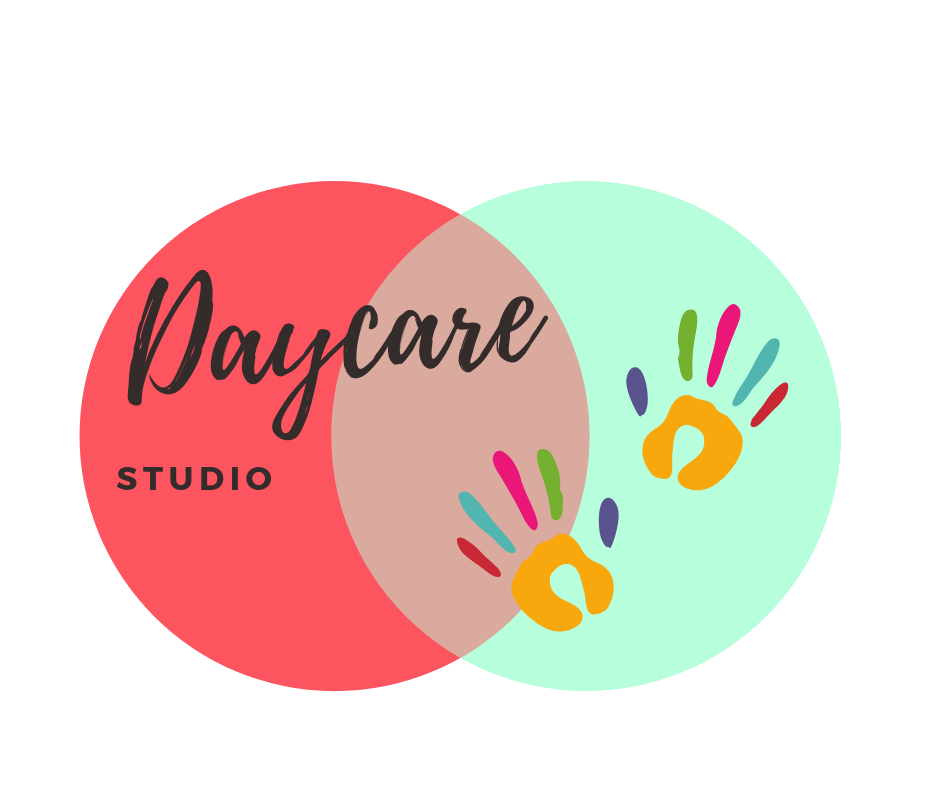Starting a Childcare Business? Top 4 Questions Answered!
This post may contain affiliate links, which means I'll receive a commission if you purchase through my link, at no extra cost to you.Hello, aspiring childcare business owners! Whether you're just starting your journey into the world of childcare or looking to expand an existing in-home daycare, you're about to embark on a fulfilling yet challenging adventure.
But don't worry, you're not alone. To make your voyage a bit smoother, I've gathered the top four questions that I'm most frequently asked about starting a childcare business. These questions cover crucial topics such as obtaining funding and how much, transitioning from a home-based daycare to a childcare center, and deciding between leasing, using an existing turnkey childcare center, or building from scratch. Let's dive right in!
Before we get started, If you’re new to my site, don’t forget to snag my FREE Interview Guide to hiring quality staff for your program before you leave!
Now Let's explore the top 4 questions about starting a childcare business.
Question 1: How Do I Obtain Funding to Start My Childcare Business?
Starting a childcare business requires financial planning, and for most people, that means securing some form of funding. Below are a few options to consider:
Personal Savings
Using personal savings is the most straightforward option, as it doesn't entail going into debt or relinquishing control of your business. However, this may not be feasible for everyone, and even if it is, it's advisable to have some funds left as a cushion for operational expenses.
Bank Loans
Traditional bank loans are a common funding source, but you'll need a strong business plan and possibly collateral to secure the loan. Interest rates can be a burden, so make sure you account for this if you’re going this route. You can check out my business plan template here.
Government Grants
You can sometimes find grants to support the development of childcare services. Look into local, state, and federal grants that you might be eligible for. Remember, grants don’t need to be paid back, but they often come with stipulations that you’ll need to follow. For more grant info, check out my article, Unlocking Grant Opportunities for Your Daycare or Childcare Center.
Investors
Getting an investor to back your childcare business is another option. This could either be a silent partner or an active member of your business. However, this usually means giving up a stake in your company.
Crowdfunding
Platforms like Kickstarter or GoFundMe allow you to raise small amounts of money from a large number of people. This is a less traditional route and success can be variable, but it's worth considering, especially if you have a unique or compelling business concept.
Question 2: How Can I Expand to a Childcare Center from a Home Daycare?
Transitioning from a home daycare to a larger childcare center is a significant leap, but it's entirely feasible with the right planning. Here's a guide on how to go about it:
Develop a Business Plan
You will need to develop a business plan or your existing business plan will need to be modified or completely restructured to accommodate this expansion. Considerations should include new costs, staffing, facilities, and marketing strategies.
Location
Finding a suitable location is crucial. This could be leasing a space, purchasing an existing childcare center, or building from scratch. Each has its pros and cons, which we’ll discuss in the next section.
Licensing and Regulations
Expanding to a childcare center often involves stricter regulations and licensing requirements than a home daycare. Be sure to check the rules and regulations in your state.
Staffing
You'll likely need to hire more staff. Ensure that you follow all legal requirements concerning qualifications, credentials, background checks, and so on.
Marketing and Branding
You already have a client base from your home daycare. Use this advantage to market your new center. Leverage social media, community events, and parent referrals to spread the word.
Question 3: Should I Lease, Buy an Existing Childcare Center, or Build from Scratch?
This is a complex decision that depends on various factors including budget, location, and your long-term vision for the business.
Leasing
I think leasing is a great way to expand from a home to a center. Pros: Lower upfront cost, easier to relocate if needed. Cons: Ongoing monthly expense, limited control over the building layout and design.
Turnkey Existing Childcare Center
If you can find an existing childcare center owner who wants to retire or is willing to sell, do your research and see if it is a viable option for you. You will want to check out their financials and licensing reports to start.
A turnkey operation can be a great opportunity to become a daycare owner or expand from a home into a center. Pros: Quick setup, existing client base, and staff. Cons: Potential high upfront cost, potential for outdated facilities, staffing challenges, or reputation issues.
Building from Scratch
Pros: Complete control over design and layout, brand-new facilities. Cons: High upfront cost, time-consuming, possible delays, and zoning issues.
Question 4: How Much Money Do I Need to Start a Childcare Business?
The cost of starting a childcare business can vary significantly based on a number of factors such as location, size, and whether you're starting a home daycare or a childcare center. Here are some general estimates for each:
Home Daycare
Starting a home daycare is typically the less expensive option. Costs can range from $1,000 to $10,000 depending on various factors such as:
Licensing and Permits: You'll need to adhere to local and state licensing requirements, which could include application fees.
Equipment and Supplies: Think about cribs, high chairs, toys, educational materials, and safety equipment.
Home Modifications: Depending on your current setup, you might need to invest in home modifications like installing childproof gates, safety outlets, or even building an extension.
Insurance: Liability insurance is a must, and it varies depending on your location and the size of your daycare.
Childcare Center
The costs for starting a childcare center are significantly higher and can range from $50,000 to $2 million. Costs include:
Location: Whether you’re leasing, buying an existing center, or building from scratch, this is likely to be your most significant cost.
Renovations and Setup: Preparing the location to be child-friendly can be expensive. This includes furniture, toys, educational materials, and safety equipment.
Staffing: Unlike a home daycare, you'll need to hire additional staff, including teachers, administrative personnel, and possibly even maintenance and kitchen staff.
Licenses and Permits: Similar to a home daycare but usually more extensive and thus more costly.
Operational Costs: Consider utilities, food, cleaning supplies, and other recurring costs.
Conclusion:
Learning the art of saying 'no' might take some practice, especially in a service-oriented field like childcare. However, keep in mind that by doing so, you're nurturing a healthier, more sustainable environment for everyone involved. So the next time you find yourself hesitating to set a boundary, remember—it's more than okay to say 'no'.
Here are some other articles packed with valuable content you are sure to enjoy:
6 Must-Do’s To Effectively Communicate To Staff
How To Avoid Burnout in Childcare
How To Screen Families For Your Daycare
6 Tips To Ace Your Licensing Inspections
30 Daycare Policies You Need in Your Parent Handbook
Important Daycare Forms You Need For Your Childcare Business
How To Deal With Parents Who Consistently Pay Tuition Late!
Download my FREE Family Screening Guide to select the families right for you.
Download this guide to help you carefully accept the right families and avoid the high-maintenance ones. Includes 13 questions and a Family Information Card for easy follow-up.
Grab my FREE Daily Schedules for Infants, Toddlers, & Preschoolers!
Download 3 PDF schedules designed for each age; Infants, Toddler, and Preschoolers. A Canva link is provided to edit the schedules for your program. It’s absolutely free and only takes 5 seconds!
Download my FREE Daycare Starter Guide to start your own childcare business.
If you don’t know where to start, this guide is perfect for you! Click the button to get instant access. It’s super easy and absolutely free!









